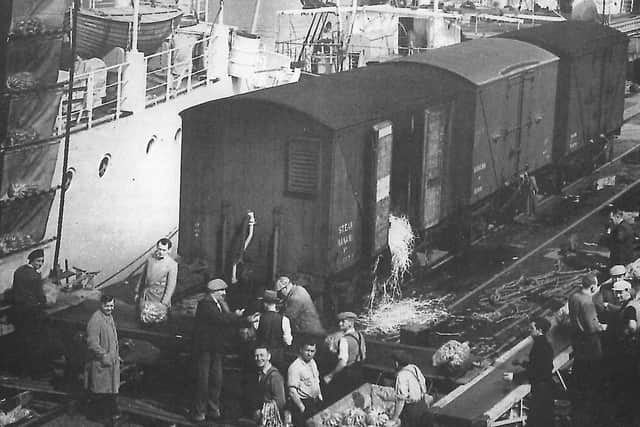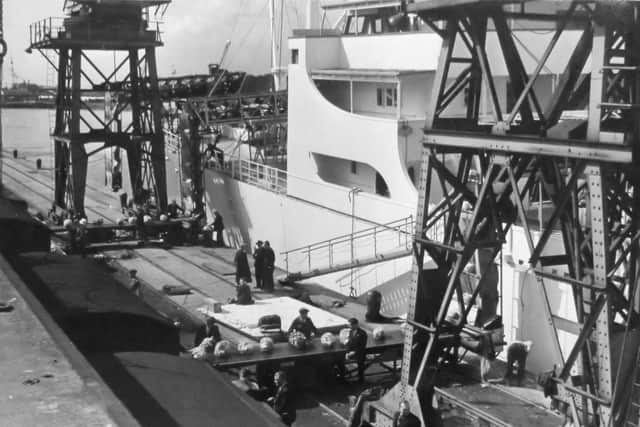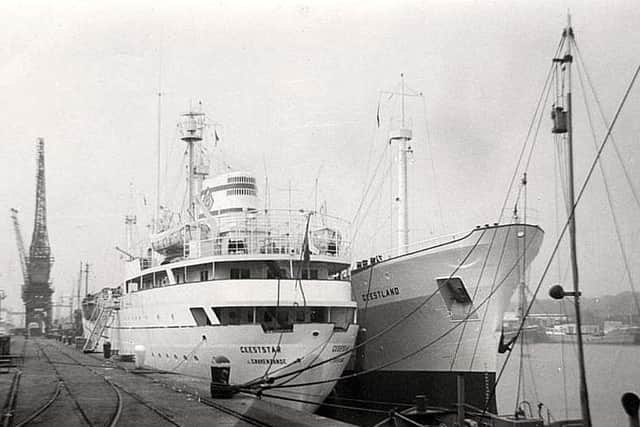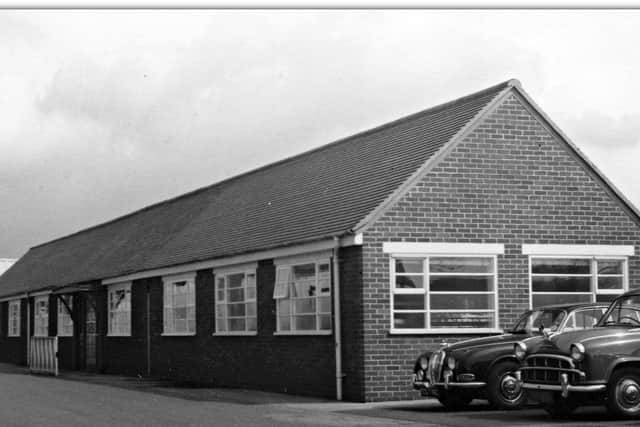How Preston made a fortune from bananas
and live on Freeview channel 276
For more than half a century, Preston’s most successful import was a golden crop from the other side of the world.
The importation of bananas from the Caribbean was the largest and most lucrative contract on the city’s once bustling docks. It was a trade which would see 10,000s of bunches unloaded at the waterfront with every shipment, until time was called in 1971.
Advertisement
Hide AdAdvertisement
Hide AdThe alarm bells started ringing when the Geest banana company announced two of its vessels were to cease plying the transatlantic route into the city. The Geeststar and Geestland had been familiar sights on the Ribble, serving the run between the West Indies and Preston for more than 10 years after entering service in 1960.


Geest said the two 2,500 tonne ships had been sold as they were no longer economically viable with Geestland having racked up 133 voyages across the Atlantic, two more than the Geeststar.
Initially, Geest’s plan was to replace the two purpose-built sister ships with two larger and faster chartered boats. But within months it was clear the company’s increasingly large ships had became too big for the Ribble and Geest switched its operations to Barry, in South Wales.
However, over a period of almost 20 years Geest, founded by two Dutch brothers John and Leonard van Geest, used the port of Preston for almost 600 West Indian cargoes.
Advertisement
Hide AdAdvertisement
Hide AdThe debut shipment landed in February 1953 when first the banana boat to sail up the Ribble – the Guiba – discharged her cargo of 80,000 bunches at the town’s Banana Wharf. A 120-strong gang of dock workers were on hand to unload the cargo ready for distribution across the region.


Initial plans were for two vessels to arrive fortnightly, bringing a total of 1.5m bananas into Preston a month. The town was chosen ahead of other north west ports because of its central location and the reputation of its workforce.
It was claimed the banana boats were turned round quicker than at any other port in the country, with a system of elevators and conveyor belts helping speed up the operation.
In 1954 the specially commissioned MV Windward Islands exported 6,686 tonnes of bananas and by 1961 it passed the 100,000 tonnes mark operating under a Swedish flag with a Swedish crew.
Advertisement
Hide AdAdvertisement
Hide AdBy 1956 there were four ships doing the ‘banana run’ calling in at Trinidad, Grenada, St Vincent, St Lucia and Dominica before making the 4,000 mile trip to Preston, including the Windward Islands’ sister ship MV Leeward Islands.


The most modern of them, the purpose-built Bonita, had a refrigerated plant on board, could travel at 17 knots and came with a £1m price tag and a capability of transporting 120,000 bunches of bananas at a time.
Their ships didn’t only carry bananas. They transported limes, coconuts and grapefruit – and a small number of highly cossetted passengers. And occasionally a more unwelcome stowaway would be found among the bananas.
In 1953 a bright green giant grasshopper, with feelers 12 inch long, ventured out of a crate from the West Indies to shock a couple of dockers. While there were reports of reptiles and even a fierce opossum and her young sneaking on board .
Advertisement
Hide AdAdvertisement
Hide AdThough essentially cargo carriers, the Geest fleet carried just 12 passengers a trip in a high standard of comfort. The journey was 10 days out and 10 days back, with a circuit of the Caribbean sunshine islands as the boats picked up their harvest.


“They travelled in the lap of luxury,” a former Geest employee recalls. “This was one of the most amazing things for a cargo boat. They had a party every night,” explained Preston shipping buff Alick Hadwen to the Post in 1995.
The Geest cruises were so popular people had to reserve their places up to 18 months in advance. Bookings could be made through the normal travel agency channels, although the intrepid sunseekers would probably have to wend their way through a quay full of hazards on their way to their floating hotels.
Cars were also carried on the outward runs, as well as the Royal Mail, with Geest ships proudly flying the postal service’s pennant and Preston enjoying kudos as a foreign mail despatch centre. Mr Hadwen recalls: “The mail was always the last thing to go on board before the gangplank went up.’’
Advertisement
Hide AdAdvertisement
Hide AdThe bananas, which arrived in Preston green, were put in refrigerated warehouses – now demolished – before being distributed across Britain, mainly by train.
But the Preston operation was over by 1971, killed, as far as the port was concerned, by its own success. For the growth of the Geest business was so great that it demanded larger and larger boats for its banana run, boats that were simply too big for Preston. The Ribble channel was getting too shallow for their larger vessels – despite dredging operations.
A second blow followed shortly after, when the Fiat car trade from Italy was switched from Preston to Liverpool. And three years later the town was hit further as Fleetwood dock became a container port, taking the Preston-Dublin trade.